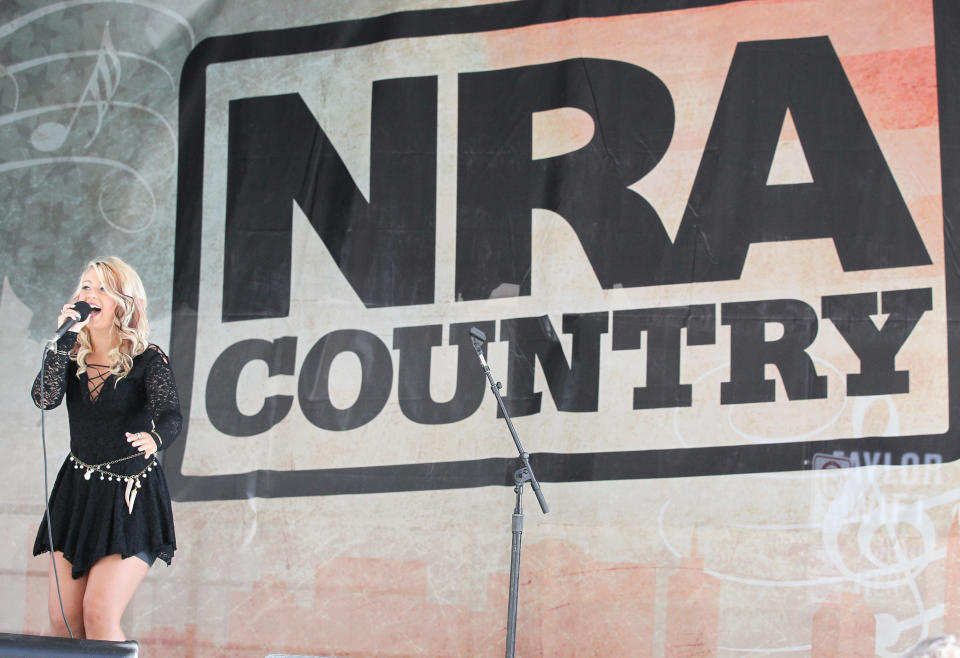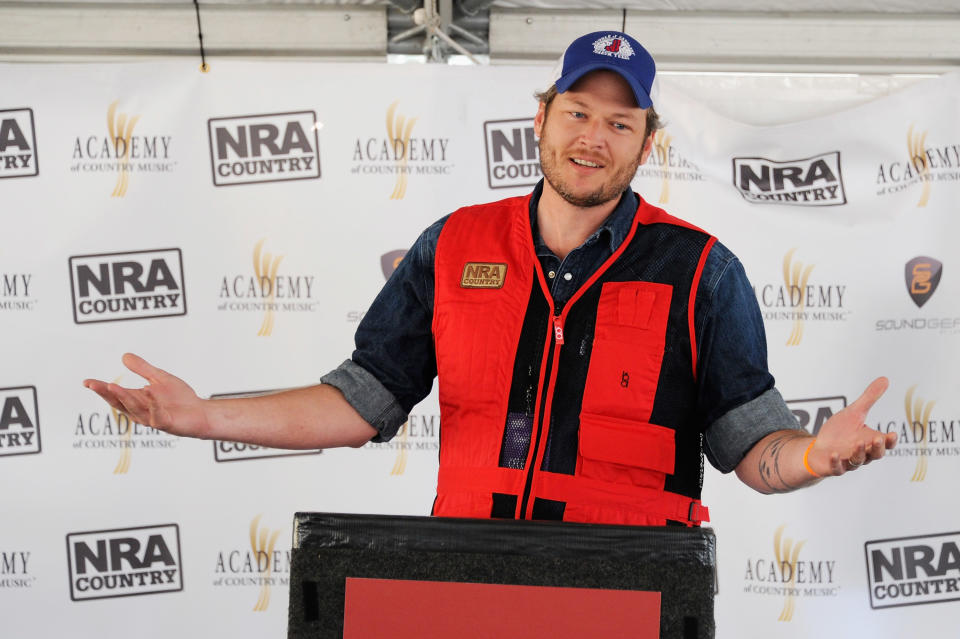Guns and country: The twisted, tangled history of the NRA and Nashville
Eric Church is still feeling the heat from his recent comments to Rolling Stone regarding the Las Vegas shooting and the NRA. The singer played a headlining set at the Route 91 Harvest festival just two nights before the deadliest shooting in modern American history. Church was personally “wrecked” by the event, but many fans took offense to his controversial view on the tragedy.
“I’m a Second Amendment guy. That’s in the Constitution, it’s people’s right, and I don’t believe it’s negotiable. But nobody should have that many guns and that much ammunition and we don’t know about it,” he told the magazine.
“There are some things we can’t stop. Like the disgruntled kid who takes his dad’s shotgun and walking into a high school. But we could have stopped the guy in Vegas. I blame the lobbyists. And the biggest in the gun world is the NRA. I’m a Second Amendment guy, but I feel like they’ve been a bit of a roadblock. I don’t care who you are — you shouldn’t have that kind of power over elected officials.”
Almost immediately after the article was released, Church was hit with Dixie Chicks-level boycott threats to his music, shows, and merchandise — which was expected. Rolling Stone asked about the blowback from fans about his NRA comments, to which Church responded, “I don’t care. Right’s right and wrong’s wrong. I don’t understand why we have to fear a group [like the NRA].”
Although it’s too soon to see whether #boycottericchuch will impact the singer’s career, any objective observer can understand why fans are outraged: Guns are a huge part of the country music culture, and the NRA is a huge part of the country music industry. The latter is a relatively new development.

Country songs as far back as Johnny Cash’s 1958 single “Don’t Take Your Guns to Town” all the way up to modern hits like Luke Bryan’s “Huntin’ Fishin’ and Lovin’ Everyday” have glamorized firearms. Country music thrives on the lifestyle of its fans, which includes guns as much as beer and pickup trucks. But in 2010, fans started associating country music with the largest gun-lobbying group in the country, the National Rifle Association. That year, the group launched NRA Country, a lifestyle brand dedicated to building a “bond between the best and brightest in country music and hard-working Americans,” according to its website.
NRA Country wasted no time solidifying that bond. Director of NRA Country Vanessa Shahidi told Nashville’s Tennessean in 2015, “It’s no secret, if you poll our members, they love country music. Everything country singers sing about, they live their lives the way our members live their lives.”
The brand provided members with exclusive video blogs and interviews focused on the artists’ off-stage life, which often featured hunting or target shooting. NRA Country sponsored tours, including Luke Bryan’s “Farm Tour” in 2010 and 2011. It also spotlighted artists in print ads touting the “Featured Artist of the Month.”
The relationship was mutually beneficial: Country artists big and small were promoted to the NRA’s nearly 5 million members, and the artists attracted potential new NRA members.

In 2011 and 2012, NRA Country hosted a Celebrity Shoot in Las Vegas with the Academy of Country Music. Several notable country singers attended the event, including Blake Shelton, Lee Brice, Brett Eldredge, and Jake Owen. NRA CEO and Executive Vice President Wayne LaPierre spoke at the event in 2012.
In 2014, legendary country act Alabama became the first country artists to perform at the NRA annual meeting. The following year, the NRA hosted its meeting in Nashville with more than 30 artists performing throughout the four-day event. This included a sold-out NRA-sponsored show at the Bridgestone Arena featuring Alan Jackson and comedian Jeff Foxworthy.
NRA Country also brings country artists to the Great American Outdoor Show, an NRA-sponsored convention that features gun sales. In 2016, London’s Guardian reported that in between concert sets, NRA videos played on loops to the anxious audience with this message: “We need to take our country back and fight like hell to save America.”
But in 2017, the relationship began to show signs of fraying. After 58 victims lost their lives at the Route 91 Harvest festival, several country artists were hesitant to align themselves with NRA Country. Florida Georgia Line and Thomas Rhett, both once-featured NRA Country artists, confirmed they severed their connection with the organization.
Some even spoke in favor of gun legislation. Superstar country couple Tim McGraw and Faith Hill told Billboard that “common sense” gun control was “necessary.”
“It’s not about the Second Amendment,” McGraw said.
“It’s everyone’s responsibility, including the government and the National Rifle Association, to tell the truth,” Hill added.
After the Parkland shooting that killed 17 people in Florida in February, several country artists supported the March for Our Lives movement. Garth Brooks recorded an uplifting message for survivor Emma Gonzalez, and Little Big Town walked in the worldwide march. By March of this year, NRA Country removed its featured artist list from its website entirely.
A post shared by jimiwestbrook (@jimiwestbrook) on Mar 24, 2018 at 3:32pm PDT
NRA Country did not respond to Yahoo Entertainment’s repeated attempts for comment on its future association with artists, but the organization is still a viable, albeit smaller, part of the country music industry. LoCash and Granger Smith are the featured headliners for the 2019 Great American Outdoor Show. NRA Country has also been promoting smaller acts on Twitter.
But many echo the sentiments of Church to Rolling Stone, boycotts or not: “At this point in time, if I was an NRA member, I would think I had more of a problem than a solution.”
Read more from Yahoo Entertainment:

